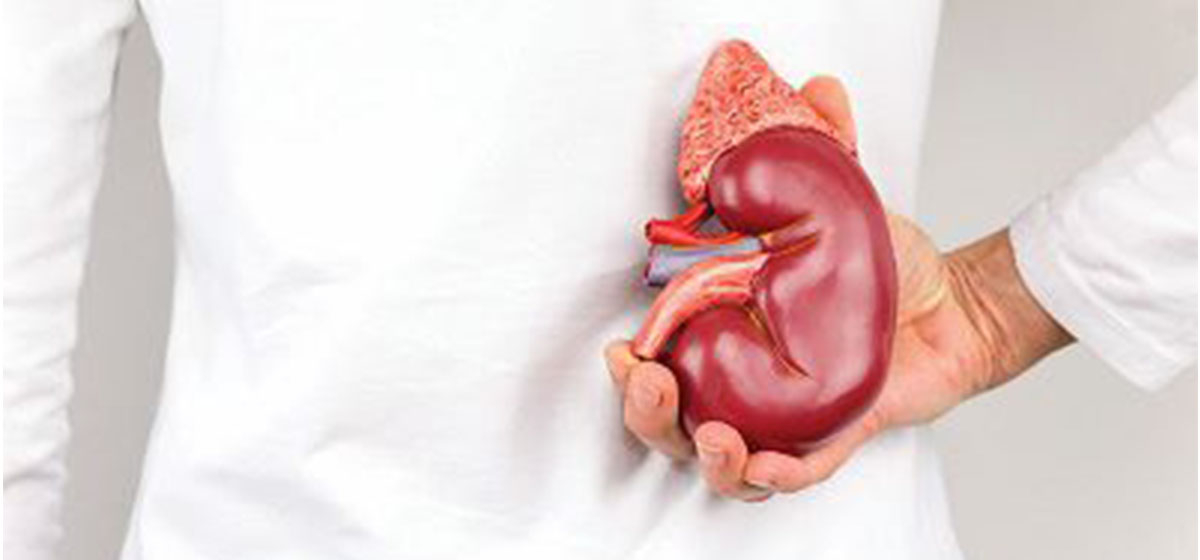
KATHMANDU, Jan 30: In 2076 BS, a young man from Kavre, whose financial condition was poor, sold his kidney to the Nidan Hospital in Lalitpur after being lured by an agent. He received Rs 300,000 in return for selling his kidney.
His middleman had instructed Shankar Lal Lama of Ramechhap to provide the kidney as a fake nephew. The middleman instigated the sale of the kidney, stating that it would not affect his health, and added that he would get money in return. Local middlemen seem to be active in such activities.
According to the legal documentation, Sanjeev Ghising is the nephew of Lama. The incident came to light after the person's face did not match with the documents submitted to the hospital.
However, many such incidents are kept secret and are not brought under the scope of action. About two and a half decades ago, in the village of Hokse in Kavrepalanchowk, there was an auction for the sale of kidneys. The locals used to go to India and sell kidneys through middlemen.
A 55-year-old Sujan Lama (name changed) from Hokse is one of those who went to India in 1988 to sell his kidney. He was lured by the middleman mentioning that the person receiving the kidney had 100 ropanis of land and would provide him 10 ropanis of land after donating his kidney.
After donating a kidney, he didn't even get a chance to meet the recipient. When trying to contact, the middleman said that the kidney recipient’s phone was switched off. He gave his kidney but did not receive a single penny for it.
A local of Hokse used to work as a kidney middleman. He returned to Hokse in 1996 after spending a long time in India as a middleman. He fed liquor a lot to the youths in the domestic liquor shop. The youths were curious about where and how he got the money to spend so much. The middleman said that he earned by working in India.
With the dream of earning tons, some young men entered India with that middleman. They worked as a security guard for four to five months but did not earn as much as he said. The middleman then explained how to make easy money by selling kidneys. One of the young men who entered India sold his kidney. He returned home with Rs 120,000.
The middlemen often cheat both the kidney donor and the recipient. Knowing the financial situation of the kidney recipient, they charged as much money as possible. They used to give very little money to kidney donors. In some cases, they do not pay any money stating that the kidney was not suitable to the recipient and became ill instead.
According to a study, more than 300 people from Kavre sold kidneys two and a half decades ago. Indian middlemen used local middlemen from Kavre to instigate the sale of kidneys. According to the study report, the local middlemen had conveyed the information that donating a kidney would not affect their health and added that they could work normally.
Those middlemen used to spend the money they earned through kidney smuggling in the village to show that they had a lot of money. And they used to share with the villagers about the ways to earn money. It was reported that a resident of Hokse, Kavre was obliged to sell his kidney due to poverty.
Experts claimed that the main reason for selling kidneys by the locals of Hokse is the temptation given by middlemen and illiteracy rather than poverty. With the increase in education and public awareness, now a notice board has been installed in that village mentioning ‘kidneys should not be sold.’ The research titled 'Ethnographic Study of Village with One Kidney in Central Nepal', published in the Global Public Health Journal, has shown that kidney smuggling has now stopped in Hokse.
According to the study report, those who sold their kidneys were found doing risky work because they were told that selling kidneys would not affect their health. Selling kidneys for the villagers seemed normal. At that time, selling a kidney and getting Rs 100,000 was a big amount for a villager. Some of them even built a house by selling their kidney.
The middlemen used to arrange the necessary documents for the kidney donor to take them to India under a setting. “The middlemen used to smuggle kidneys by crossing the border to reach India. They instructed kidney donors to pretend to be brothers and nephews, and were told to give the same answers to the doctors in the hospital,” the report stated. They used to prepare fake documents to be related to the kidney recipient.
According to the study, the person who sold the kidney did not undergo a health test even when they were sick for fear that their secret would be public. Even though they are not supposed to perform hard work, they continued which resulted in an adverse effect on their health.
In 2022, a study reported that the risk of kidney smuggling remains in other remote villages in the country. In recent times, there have been reports in the media about kidney smuggling in the villages of Sindhupalchowk, Myagdi, Kavre, and other districts especially among the settlements where people struggle to make ends meet.
Public Health and Senior Scientist at Oxford University, Bipin Adhikari says even now in Nepal, middlemen who tempt people from remote villages and poor families to sell kidneys are active. “There are many remote and poor villages in Nepal. Middlemen reach such places and tempt locals to sell their kidneys for the sake of money,” he said.












